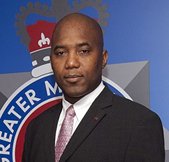- Home
- News & Blogs
- About Us
- What We Do
- Our Communities
- Info Centre
- Press
- Contact
- Archive 2019
- 2015 Elections: 11 new BME MP’s make history
- 70th Anniversary of the Partition of India
- Black Church Manifesto Questionnaire
- Brett Bailey: Exhibit B
- Briefing Paper: Ethnic Minorities in Politics and Public Life
- Civil Rights Leader Ratna Lachman dies
- ELLE Magazine: Young, Gifted, and Black
- External Jobs
- FeaturedVideo
- FeaturedVideo
- FeaturedVideo
- Gary Younge Book Sale
- George Osborne's budget increases racial disadvantage
- Goldsmiths Students' Union External Trustee
- International Commissioners condemn the appalling murder of Tyre Nichols
- Iqbal Wahhab OBE empowers Togo prisoners
- Job Vacancy: Head of Campaigns and Communications
- Media and Public Relations Officer for Jean Lambert MEP (full-time)
- Number 10 statement - race disparity unit
- Pathway to Success 2022
- Please donate £10 or more
- Rashan Charles had no Illegal Drugs
- Serena Williams: Black women should demand equal pay
- Thank you for your donation
- The Colour of Power 2021
- The Power of Poetry
- The UK election voter registration countdown begins now
- Volunteering roles at Community Alliance Lewisham (CAL)
Defining Hate Crime and Racist Incidents
 Richard Alleyne, Executive Member of the National Black Police Association, writes exclusively for OBV about policing and the definitions of what a hate crime and racist incident are.
Richard Alleyne, Executive Member of the National Black Police Association, writes exclusively for OBV about policing and the definitions of what a hate crime and racist incident are.
I believe it crucial that a clear understanding of the distinction between Hate Crime and Racist Incidents is established, as there is at times a tendency to use the terms synonymously, which may impact adversely on the manner in which they are perceived, reported or investigated across the UK.
Firstly the Home Office defines a Hate Crime as any criminal offence that is motivated by hostility or prejudice based upon the victim’s disability, race, religion or belief, sexual orientation or transgender.
Next this is distinguished from a Racist Incident by an examination of the McPherson Report into the racially motivated murder of Stephen Lawrence. The report classifies a racist incident as any incident, which is perceived to be racist by the victim or any other person.
Arising from the McPherson report and the recommendations contained therein, the Home Office produced a Code of Practice, which established guidelines for the minimum data requirements for the effective and consistent recording and reporting of racist incidents.
Recently published Home Office statistics shows a reduction in the number of reported racist incidents for the year 2009/2010. The report states that Police forces across England and Wales recorded 55,056 incidents connected with racism, a drop of 1.4% from the 55,862 incidents recorded for the period 2008/09.
The questions that therefore have to be considered are; how accurately do the statistics reflect the actual proliferation of Hate Crime and Racist Incidents? Is there an issue with the manner in which the incidents are being recorded; and has there been any deviation from the provisions of the code of practice regarding the recording of these incidents?
All of the above questions have to be answered while juxtaposing the current economic downturn, the introduction by the government of new policies that will result in a significant reduction in public spending and the resulting knock on effect of a contraction in the workforce. Together with the continuing issues of immigration and the stance of the anti-immigration agenda posited by certain individuals and organisations.
I submit that crucially the definitions embodied in descriptions of Hate Crimes and Racist Incidents must remain fore most in the minds all of the organisations tasked with the identification, recording and investigation of such incidents, as they arise from the often horrific suffering on innocent individuals.
Further, there must be a concerted effort to ensure that persons who have in some way been subjected to such incidents be made aware of their need to report any such occurrences in order that they are dealt with in a correct and timely manner. This is why the National Black Police Association (NBPA) has highlighted Hate Crime as a key aspect or our Strategic Action Plan for raising awareness nationally.
The objective of the NBPA is the promotion of good race relations and equality of opportunities within the Police Services and wider communities of the UK.
Richard Alleyne
Executive Member of the NBPA
